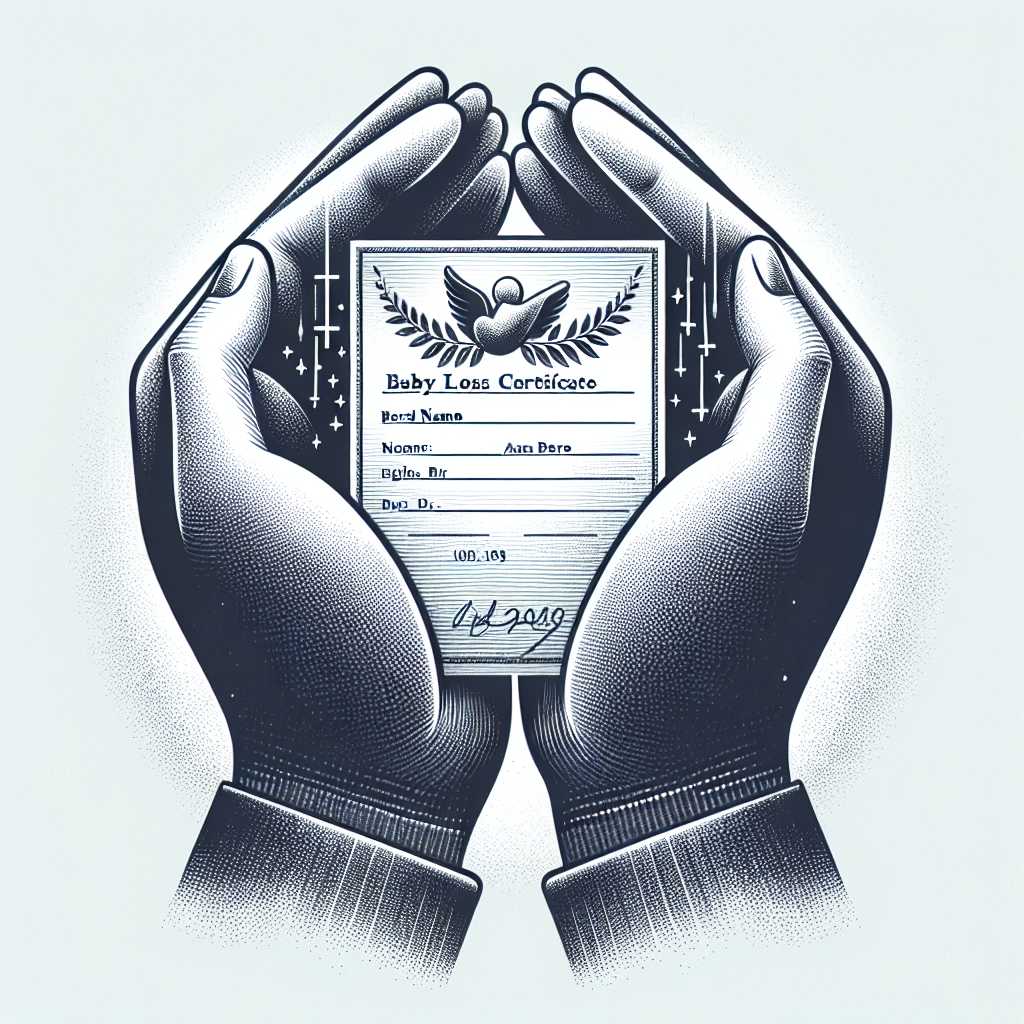Understanding the Baby Loss Certificate: A Compassionate Response to Early Pregnancy Loss and Stillbirths
In an effort to bring solace and official recognition to the profound grief of parents experiencing the tragedy of a lost pregnancy or stillbirth, the introduction of a formal Baby Loss Certificate plays an important role in honoring their child’s short-lived journey and acknowledging their existence. These documents serve as tangible recognition for bereaved parents, acknowledging their loss and helping in their grieving process.
The provision of a Baby Loss Certificate offers a way for parents to commemorate their baby, who may have been born before the gestational age at which their birth would be officially registered. This service seeks to provide comfort and closure for families deprived of typical birth or death certificates due to legal and medical regulations regarding gestational age thresholds.
Baby Loss Certificates: International Perspectives and Practices
The approach to issuing a Baby Loss Certificate varies dramatically around the world, often reflecting cultural attitudes towards infant loss, medical definitions of viability, and legal frameworks concerning personhood and citizenship.
In some countries, like the United Kingdom, there is recognition of baby loss with certificates provided by hospitals or through charity organizations regardless of gestation period. These certificates stand separate from legal documentation but provide significant emotional support.
In the United States, options may fluctuate by state, where some offer a “certificate of birth resulting in stillbirth” for those losses occurring after a legally defined point of viability. While it does not equate to a traditional birth certificate in terms of rights or citizenship, it nevertheless serves as government-issued documentation honoring the pregnancy that was lost.
Countries vary greatly in their approach, with some offering official recognition and documentation, while others lack formal mechanisms but may provide hospital certificates or acknowledge the loss in other supportive ways within healthcare systems.
Navigating the Process of Obtaining a Baby Loss Certificate
The process for obtaining a Baby Loss Certificate often involves working through hospital protocols or navigating governmental departments that manage vital statistics and records. Parents may need to initiate the request themselves, and each locality may have specific requirements that govern how certificates are issued.
While some healthcare providers or hospitals might be proactive in offering a certificate, others may require active engagement from grieving parents
An important note is that parents often require guidance during this process due to their vulnerable emotional state. Consequently, many advocacy organizations and support groups exist to help parents through this difficult process.
Notes
Conclusion: The Importance of Recognition Through Baby Loss Certificates
In conclusion, while they hold no legal standing akin to birth certificates, Baby Loss Certificates represent a significant token of acknowledgment to many grieving families who suffer an early pregnancy loss or stillbirth. They dignify the existence of babies who were deeply loved though they never had the chance to live outside the womb.
Granting these certificates helps emotionally validate the grief process for parents, serving as an enduring keepsake that commemorates their child’s ephemeral life. These documents also serve societal awareness by bringing more attention to pregnancies that end in loss — demystifying and destigmatizing experiences that are often suffered in silence.
Nonetheless, as valuable as these certificates are for some families, they equally highlight disparities that exist between regions and underscore the necessity for better universal support mechanisms and sensitivity towards those grieving such personal tragedies.
image description: An illustration showing hands cradling a symbolic paper document titled ‘Baby Loss Certificate’, with an inscription below stating a name with date symbols denoting a sense of memorial and remembrance.
